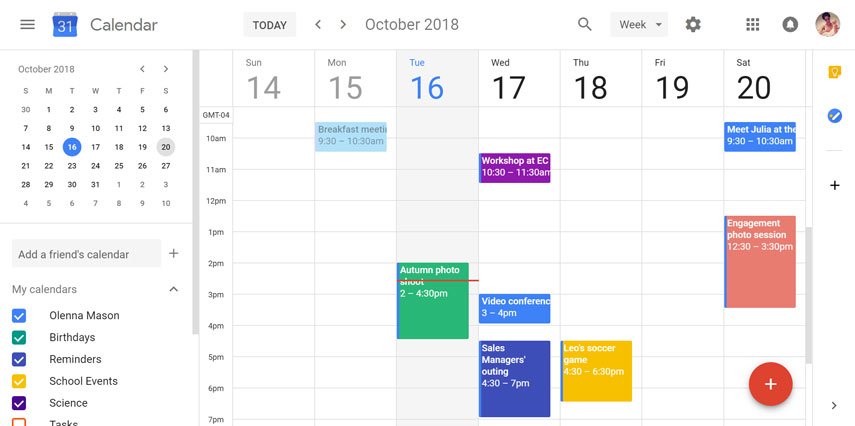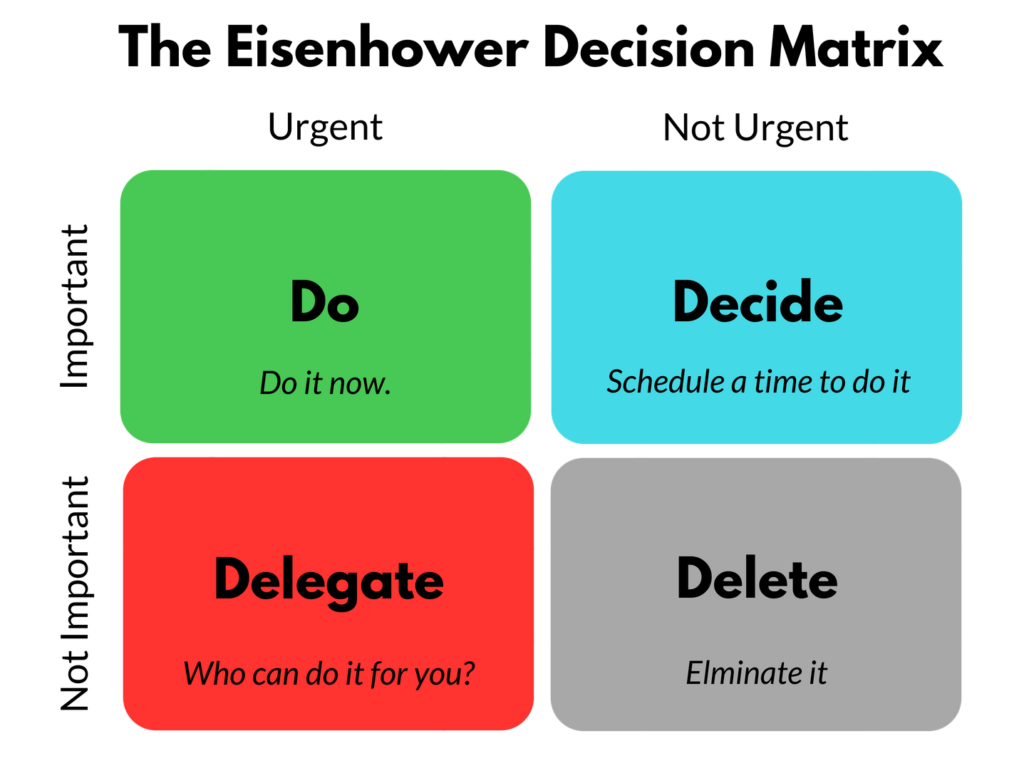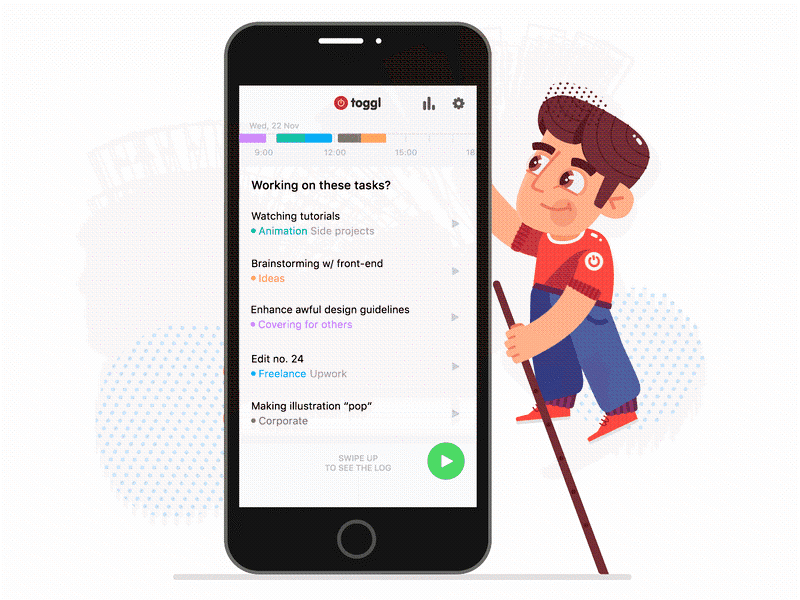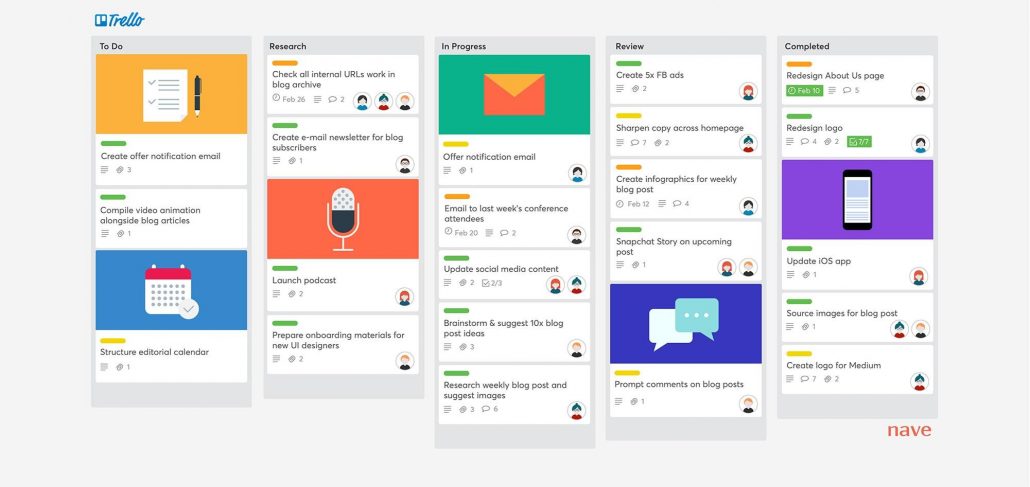6 tips for better time-management
How often do you find yourself overwhelmed by all the deadlines, responsibilities and to-do’s as a student? Trying to balance our studies with part-time jobs, volunteering, sports or just maintaining a social life is one of the biggest causes of stress for students. This issue can be tackled with better time management. We have more to say than just to make a simple to-do list, so stay tuned for 6 tips and techniques to help you better manage your time!
1. Know your priorities
In time management, prioritization is key. Eisenhower provides us with a framework that helps us compare different tasks to their value and alignment with goals.
We call the first quadrant Do as its tasks are important for your life and career and need to be done today or tomorrow at the latest – for example, an assignment that is due soon.
The second quadrant we call Decide. Its tasks are important but less urgent. You should list tasks you need to put in your calendar here, for example a long-planned restart of your gym activity.
The third quadrant is for those tasks you could Delegate as they are less important, but still pretty urgent. An example of a delegated task could be giving somebody else a part of your work.
The fourth and last quadrant is called Delete because it is there to help you sort out things you should not be doing at all.
2. Set a maximum of 3 items on your to-do list
An often misconception about planning and organizing your time is that we need to use fancy apps and multiple tier planning systems to keep ourselves on top of things. Having unrealistic expectations and not leaving enough room for rest and recharge can be contra-productive. Keep it simple and have realistic expectations by always leaving room for unpredicted delays.
3. Manage your time with Toggl
To manage your time more effectively you can try using a time tracking tool. The Toggl app is a manual time tracker that records how much time you spend on each task throughout the day. Tracking your time manually makes you think harder about it – you start to realize more accurately how you spend time on a daily basis and that lets you make changes going forward.
4. Use To-Do Apps and Calendars– your virtual assistants
Some simple to use and useful apps for managing your time are Google Calendar, Trello and ToDoist. 
Google Calendar allows you creating and editing events with options for type and time, locations and different colors. It enables synchronizing an external calendar, setting reminders for birthdays and holidays.
Trello works in a similar way, but focused on to-do lists:
5. Try Elon Musk’s timeboxing method
Elon musk spends 80% of his time on design and engineering instead of business and meetings, despite what people think – this is all because of his time organizing method. The time-boxing technique is the practice of setting a fixed amount of time for each task and integrating the time blocks into your schedule. Write a to-do list and allocate how much time each task is going to take. Essentially, time boxing creates a useful limitation that can actually make you more productive. As Parkinson’s law says: “Work expands to fill the time allotted for it”.
6. Say “no” for your time management
Saying no is a crucial skill in time management. Those of us who are overly busy and committed seem like we just can’t say no to new opportunities. Whether it is something that people need from us, or just something really cool we want to do. We have to be able to say no if we want to be able to prioritize things that really matter and give them the time that they deserve.
Finally, it is important to know that we shouldn’t let the perfect be the enemy of the good. Avoid over analyzing everything you do. While these tips can help you tremendously on the way, effective time management is ultimately a result of having the right attitude and commitment to your goals. Whatever tools you use, make sure you leave time for rest and relaxation to keep you happy and motivated all throughout your life!
Hey, I’m Petra – a Croatian 20-something studying International Business Administration at Tilburg University, Netherlands. I study abroad because I believe international experience has the potential to enrich just about anyone’s life. At the moment, I am a member of the AIESEC Local Committee in Tilburg, working as an online marketing manager. The marketing team I collaborate with is culturally diverse and shares the same values, some of them being openness, equality, compassion and creativity.
















